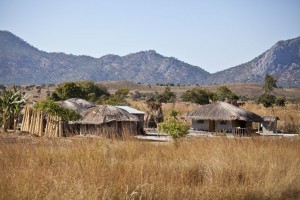BAALAH, KENYA – A medical mission trip made up entirely of hospital administrators has just returned to America after a week serving the needy in a remote African village.
 “You hear all the time about the great work that doctors, nurses, and other health care professionals are doing when they go over to Africa for a week,” said James Humperdinck, CEO of the LifeHealthCrossStarMedBridge hospital network. “We were tired of sitting on the sidelines. We’re always telling our employees how everyone has a part to play in serving patients, so why shouldn’t we go to impoverished nations, too?”
“You hear all the time about the great work that doctors, nurses, and other health care professionals are doing when they go over to Africa for a week,” said James Humperdinck, CEO of the LifeHealthCrossStarMedBridge hospital network. “We were tired of sitting on the sidelines. We’re always telling our employees how everyone has a part to play in serving patients, so why shouldn’t we go to impoverished nations, too?”
After raising funds from fellow administrators and cutting nurses’ salaries again, the group of 40 executives, administrators, and thought leaders, touched down in Nairobi and then took a fleet of safari vehicles north.
“There are obviously a lot of needs everywhere, but we felt a rural location best emphasized an untapped market full of potential for leading change,” said Jean Strawman, Chief Visionary Officer for LifeHealthCrossStarMedBridge and chair of the mission trip planning community.
After the arduous drive beset by troubles – a flat tire required an hour stop and the air conditioning in one of the safari vehicles didn’t work very well – they finally arrived in the hot, dusty town of Baalah. Here, the only medical services available to locals are at small clinic run by a community nurse, Florence Rendille.
“We have a lot of health needs here in Baalah – vaccinations, clean water and sanitation, maternity care – and when I was told that the team was coming, I was very excited about all the services they said they could provide. The whole community was looking forward to a week of systems transformation and cutting-edge disruption of old ways of business.”
The team got right to work instantly finding a major source of errors. The current medication tracking system – involving a logbook on top of the medication cabinet, which is kept in one corner of Ms. Rendille’s office – was immediately identified as an area for improvement.
Fortunately, the team had brought a donated Pyxis machine to aid in their efforts to revitalize the clinic. In a village where electricity can be unreliable, they used the rest of the donated money to purchase a generator. This will power the machine at all times, but only the machine, nothing else.
“We even did a brief impact study and found that patient volumes increased 45% in the first 3 days after implementing the Pyxis system. Clearly patients will want to come to clinic more if they know it’s an accredited organization!”
They also introduced the clinic to patient satisfaction surveys, and how this is the standard of medicine. All told, only 3 patients were seen in the 10-day trip due to all the training and oversight that had to be implemented.
The team finished up their time in Africa with a safari at Mount Kenya on the way back. They all took time to reflect on their experiences by passing a ball around in a circle as they feasted on game meats in the safari lodge.
“The most important thing you can do for yourself is to give to others,” said Humperdinck as he held the ball. “And that’s what this trip was all about.”







